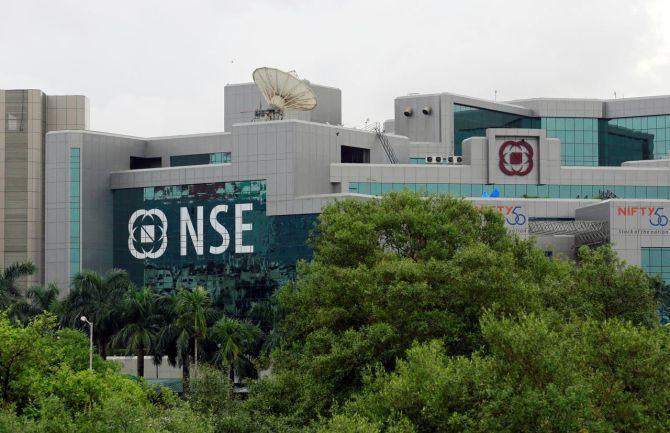The National Stock Exchange (NSE) of India is going to indefinitely defer the internal deadline set for extending trading hours, according to sources in the know.

The exchange aimed to introduce a three-hour evening session exclusively for index derivatives by March 2024, contingent upon regulatory clearance from the Securities and Exchange Board of India (Sebi).
Sources indicate that the market regulator has not provided a favourable indication, dimming optimism surrounding the proposal.
Allowing longer trading hours would enhance the profitability and volumes of the country’s top bourse, solidifying its position as the world’s largest bourse in terms of traded derivatives contracts.
Email queries sent to NSE and Sebi remain unanswered until the time of going to press.
Last month, Sebi chairperson Madhabi Puri Buch said that the proposal to extend trading hours required more consultation with other key stakeholders.
“There are three categories of stakeholders in the market — market infrastructure institutions, stockbrokers, and investors.
"Our feedback is that we would take a decision only when we have feedback from brokers and investors,” Buch said at a press briefing following Sebi’s last board meeting on November 25.
Industry sources suggest that brokers and investors haven’t shown equal enthusiasm towards the proposal compared to stock exchanges.
“The feedback of investors is most paramount.
"As long as there is no crying demand from them and other stakeholders, Sebi will not be convinced.
"They will also have to make noise around it. Currently, it is largely NSE that is pushing for it,” said an exchange executive.
Earlier this year, NSE submitted a request to Sebi to allow a special session between 6 pm and 9 pm exclusively for index derivatives. Some market players expressed apprehension about the proposal to keep derivatives trading open without the cash market.
“Some stakeholders think that unless the cash equity segment is also open (in extended hours), single stock options and futures may not make sense.
"We are taking cautious steps and will test the appetite with basic index derivatives products for three hours,” Sriram Krishnan, chief business development officer at NSE, told Business Standard in September.
He also said that the exchange had to address some risk and surveillance aspects before the roll-out.
Several brokers are apprehensive about the proposal, fearing that the increased cost wouldn't be commensurate with the higher revenues they would generate.
Currently, both the equity cash and derivatives segments are open between 9.15 am and 3.30 pm.
The little over seven hours of trade timings for the $4.1 trillion Indian markets are considered restrictive.
The domestic markets are closed when the European and US markets, considered the main drivers for global equities, are active, putting onshore traders at a disadvantage.
Industry players say Sebi has to walk a tightrope on the proposal to extend trading hours.
“On one hand, there is a genuine need to keep our markets open for long hours to help onshore investors react to global developments quickly.
"On the other, Sebi shouldn’t be seen prompting the derivatives market where gullible investors get drawn in without fully realising the risks,” said an executive with a broking house.
Several global trading venues such as the New York Stock Exchange, Nasdaq of the US, and MOEX of Russia conduct evening trading sessions.
Some bourses such as the Singapore Exchange and CME Group offer almost round-the-clock trading in key equity indices.
Regarding cash market timings, China’s Shanghai Stock Exchange has shorter trading hours than India, while the US has similar timings.
In 2018, Sebi granted in-principle approval to exchanges to extend trading hours in equity derivatives until 11.55 pm.
However, exchanges are required to submit detailed proposals highlighting the risk, settlement, and monitoring framework to Sebi for final approval.
Timing matters
- NSE seeks Sebi nod for extended evening session
- Intends to keep trading in index derivatives open from 6pm to 9pm
- Move would have helped price in cues from Europe, US markets
- Globally, NYSE, Nasdaq, MOEX have evening trading sessions
- Sebi says feedback of all three — exchanges, brokers, investors — crucial
- NSE decides to push back internal deadline of March
Several global trading venues such as the New York Stock Exchange, Nasdaq of the US, and MOEX of Russia conduct evening trading sessions.
Some bourses such as the Singapore Exchange and CME Group offer almost round-the-clock trading in key equity indices.
Regarding cash market timings, China’s Shanghai Stock Exchange has shorter trading hours than India, while the US has similar timings.
In 2018, Sebi granted in-principle approval to exchanges to extend trading hours in equity derivatives until 11.55 pm.
However, exchanges are required to submit detailed proposals highlighting the risk, settlement, and monitoring framework to Sebi for final approval.











